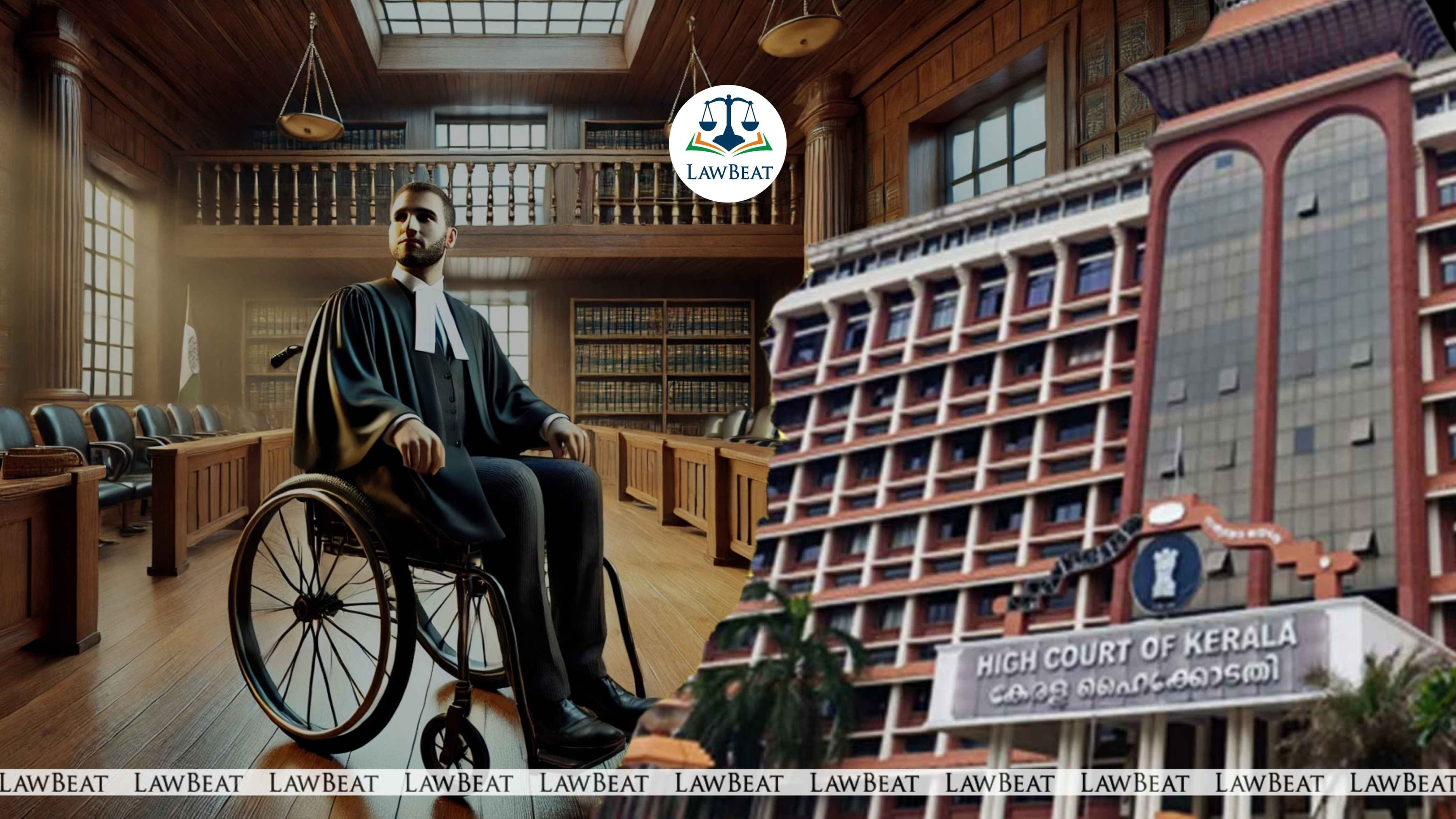No PWD Reservation in Government Pleader and Public Prosecutor Appointment: Kerala HC

The court found that Section 34 of the Rights of Persons with Disabilities Act, had no application in appointments of Advocates as Government Pleaders and Public Prosecutors
The Kerala High Court has dismissed two writ petitions seeking reservation for persons with benchmark disabilities in the appointment of public prosecutors and government pleaders.
A single judge bench comprising Justice D.K. Singh, emphasised the non application of Section 34 of the Rights of Persons with Disabilities Act, 2016 (Act of 2016) dealing with ‘Reservation’. It ruled that no reservation is mandated for persons with benchmark disabilities (PWD) in the appointment of Public Prosecutors and Government Pleaders as the Act's reservation policy applies only to cadre-based services where specific vacancies exist.
The court clarified that “the reservation up to 4% to the persons with benchmark disabilities in a service. The 4% reservation is against the vacancies in a cadre. The appointment of the Government Pleader and Public Prosecutor is not an appointment in a service which has a cadre strength, and there are no vacancies against which the reservation of 4% under Section 34 of the Act of 2016 can be made applicable.”
The petitioners filed a writ of mandamus seeking a direction to the State to implement 4% reservation for PWD candidates under Section 34 of the Rights of Persons with Disabilities Act, 2016 (Act of 2016) in the appointment of Public Prosecutors in Pathanamthitta district. It was argued that since Public Prosecutors are appointed by the Government, it constitutes public employment, warranting the application of PWD reservation norms. The petitioners contended that Section 34 of the Act of 2016 mandates reservation of 4% of vacancies in the cadre strength for PWD candidates, asserting that the Government's failure to provide reservation in Public Prosecutor appointments is a violation of the Act.
The State Government, represented by Senior Government Pleader Bimal K. Nath, argued that Section 34 of the Act of 2016 did not apply to appointments of Public Prosecutors as they did not form part of a formal cadre, and their appointments are made on a contractual basis by engaging competent lawyers from the Bar. It was highlighted that as detailed in the Kerala Government Law Officers (Appointment and Conditions of Service) Rules, 1976, their services could be terminated at the discretion of the Government.
The court agreed with the contentions of the State that the relationship between a lawyer and a government is a professional engagement, not employment, thereby excluding it from the ambit of reservation policies.
The court observed: “the appointment of the Advocates as Government Pleader or Public Prosecutor is fiat of the Government which is a client before the Court and the Government is entitled to appoint the best of the Advocates as Government Pleader and Public Prosecutor to defend its cases. No one has the right to be appointed as Government Pleader and Public Prosecutor. The appointment of Government Pleaders and Public Prosecutors is at the pleasure of the Government and the tenure of such appointment can be terminated at the pleasure of the Government… ”
The court held that the Public Prosecutors do not form a cadre under the 1976 Rules, and their appointments are not governed by vacancies but by contractual selection. “Section 34 of the Act of 2016 have no application in appointments of Advocates as Government Pleaders and Public Prosecutors, the court stated.
As a result, the petitions were dismissed.
Cause Title: Shinu KR v State of Kerala and connected case [WP(C) NO. 40356 OF 2022]
Appearance: Advocates NN Sasi and Harishankar S, Manu Ramachandran, M Kiranlal, R Rajesh, Sameer M Nair, Geethu Krishnan, and Sailakshmi Menon - For the Petitioners
